1841
1858
1865
1870
1879
1880
1885
1891
1892
1893
1894
1895
1896
1898
1901
1906 – 1909
1911
1913
1914
1917 – 1920
1919
1920 – 1922
1923 – 1929
1927
1929
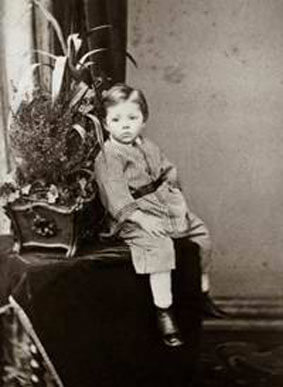
SEPTEMBRE 28, 1841
Born in Mouilleron en Pareds, in France’s Vendee region
Child Labor law
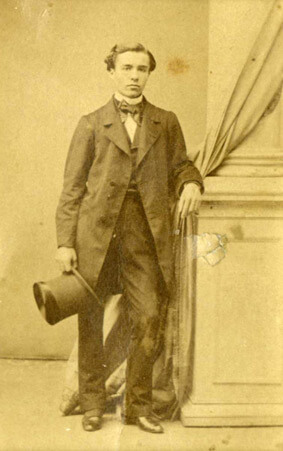
1858 – 1865
Medical studies in Nantes and then Paris
Opposition to Napoléon III
1852-1870 Second Empire
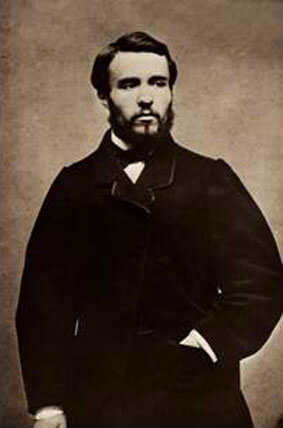
1865 – 1869
Departure to the United States – Marries Mary Plummer
1865 – Civil War ends
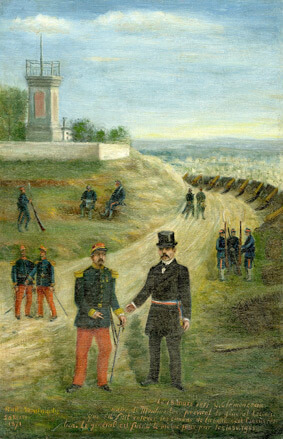
1870 – 1876
Mayor of Paris’s 18th district – City councilman and then President of the Paris municipal council, Paris deputy
On 18 January 1871, King William I of Prussia is proclaimed Emperor of Germany at Versailles and armistice is signed with the German invader a week later. Georges Clemenceau, mayor of Montmartre and Paris deputy, refuses to accept the annexation of Alsace and Moselle and resigns from the National Assembly. In March 1871, he welcomes the patriotic uprising in Paris, without officially joining the Commune. Again elected deputy for Paris’s 18th district in 1876, Clemenceau breaks with Gambetta and the rest of the government shortly after the republican success in 1877, judging them too cautious in their approach to reform. He campaigns alongside Victor Hugo for amnesty for the Communards.
Reelected as deputy on a radical program in 1881, he becomes opposition leader for the extreme left and fights for his vision of a strong and united republic for all citizens. Actively opposed to colonialization, Clemenceau draws on his eloquence in parliament to bring down successive minsters, including Jules Ferry, his main adversary.
The Third Republic (1870-1940) – Paris Commune (Spring 1871)
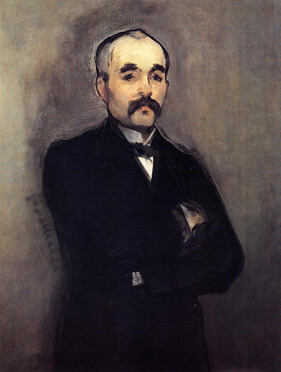
1879
Edouard Manet paints two portraits of Clemenceau
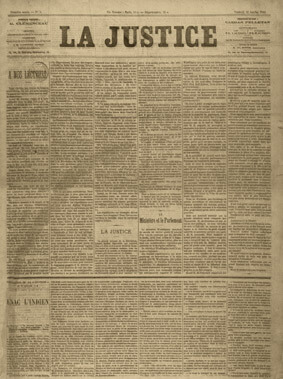
1880
Founds La Justice newspaper
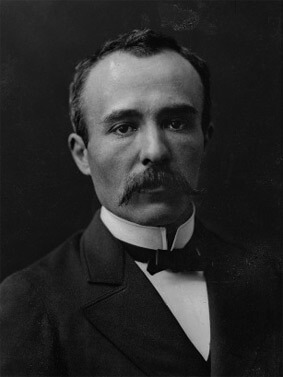
1885
Deputy for Var
Political debate with Jules Ferry on colonialization and the concept of the « inferior race »
Clemenceau the duelist also fights with words and his tongue is as feared as his sword or pistol. His parliamentary eloquence- intense, concise, and devastating- is a weapon unleashed triumphantly against successive cabinets that earns him the nickname « destroyer of ministries ». Notably, Clemenceau’s violent attacks on Jules Ferry’s colonial policy that was founded on the superiority of the white race cause Ferry’s fall in 1885. His words have remained famous: « Superior races, inferior races, that’s easy to say…The Hindus an inferior race? With their great refined civilization emerged from the mists of time…The Chinese an inferior race? Their origins unknown but seemingly from the dawn of ages… ».
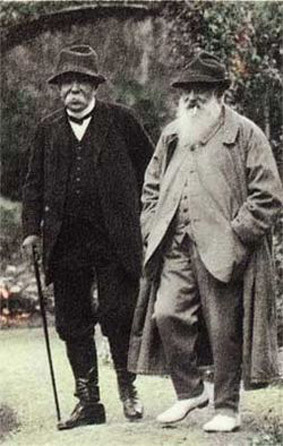
1891
Resumes contact with Monet thanks to Gustave Geffroy
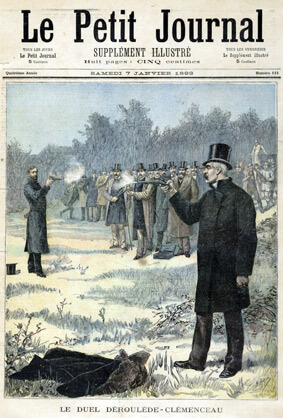
1892
Panama scandal
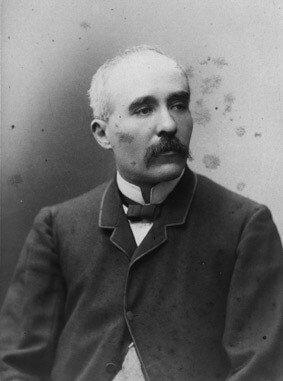
1893
Loses election in Var
Clemenceau dedicates himself to journalism and writing
Alfred Dreyfus is convicted
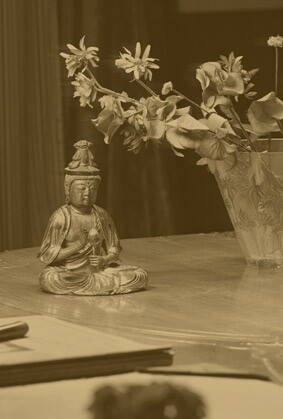
1894
Clemenceau sells Asian art collections to raise money
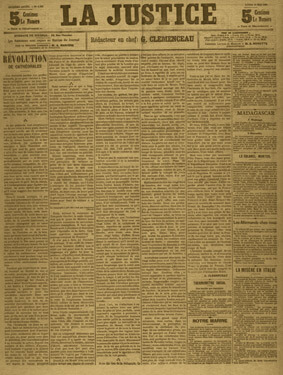
1895
Publishes an article on Monet’s cathedrals in 1895 in La Justice and speaks at the Goncourt banquet
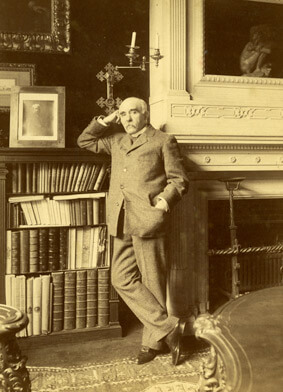
1896
Moves to rue Franklin
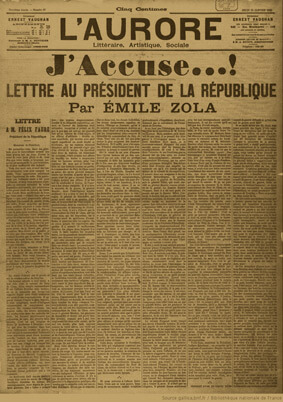
1898
J’accuse is published in l’Aurore
Clemenceau is a central player from 1897 onwards in the rehabilitation of Captain Dreyfus, who had been unjustly convicted by a military tribunal for spying. Alongside Jean Jaurès and other writers and intellectuals, he fights tirelessly to overturn the judgement. In January 1898, he gives the famous title of J’accuse to Emile Zola’s decisive l’Aurore diatribe against the Army General Staff. Clemenceau would produce no less than 665 articles in various publications until truth and justice prevails. In 1908 and just a few years after Zola’s death, Clemenceau as head of the government arranges for Zola’s ashes to be moved to the Pantheon.
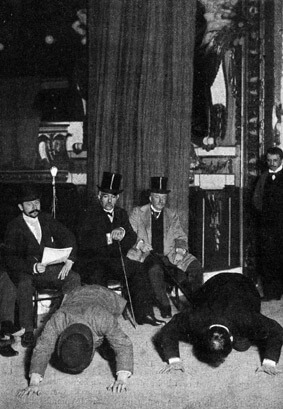
1901
Clemenceau’s play, The Veil of Happiness, is staged at Théâtre de la Renaissance
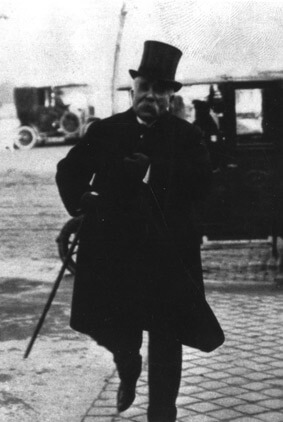
1906 – 1909
Elected senator for Var in 1902, Clemenceau becomes interior minister and President of the Council
Clemenceau is chosen by President Armand Fallières to form a new government and he succeeds Sarrien in October 1906.
Miners’ strike – Wine workers protest in the south
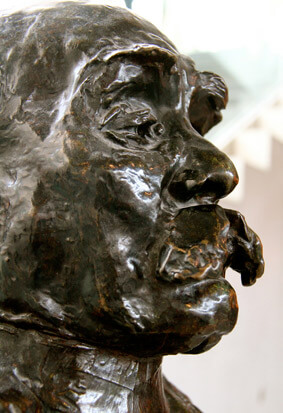
1911
Auguste Rodin works on a bust of Clemenceau
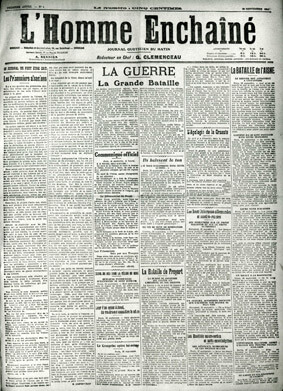
1913
Founds newspaper l’Homme Libre (The Free man), which becomes L’Homme Enchaîné (The Chained man) in 1914
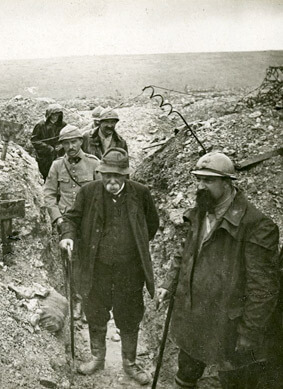
1914
Numerous visits to the Front
2 august – World War I begins
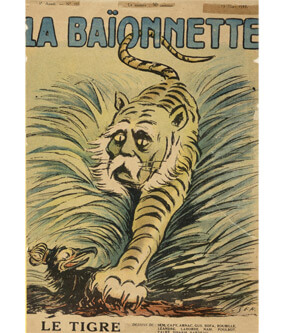
1917 – 1920
Minister of War and President of the Council – Rents house at Bélébat
In November 1917, at the height of France’s national distress, President Raymond Poincaré calls on Clemenceau to form the government. Serving both as President of the Council and Minister of War until his withdrawal in early 1920, Clemenceau exhibits an iron will and undisputed authority. He imposes the union of allied forces under the sole command of Ferdinand Foch, announces the armistice in the National Assembly on 11 November 1918 and is the main French architect of the Treaty of Versailles negotiated with British Prime Minister Lloyd George and the American President Woodrow Wilson. Clemenceau would later write about this period in his posthumous work, Grandeur and Misery of Victory.
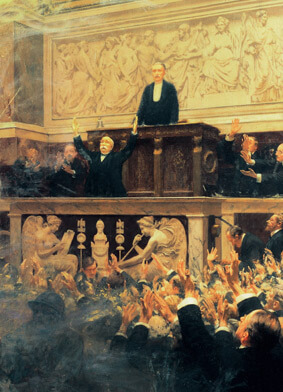
1919
Armistice, Treaty of Versailles (1919)
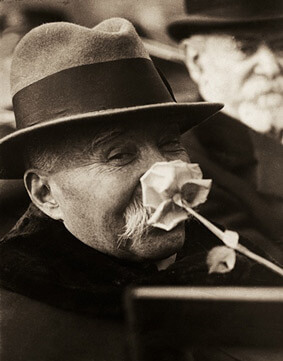
1920 – 1922
Travels in Asia as far as Indonesia and lecture tour in the United States
Versailles Treaty application problems
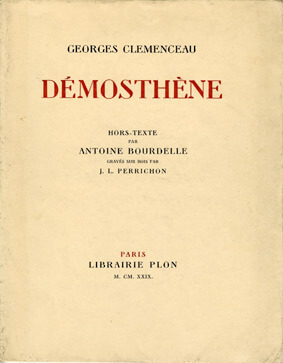
1923 – 1929
Final works
Meets Marguerite Baldensperger, his last love and writes Démosthène at her request.
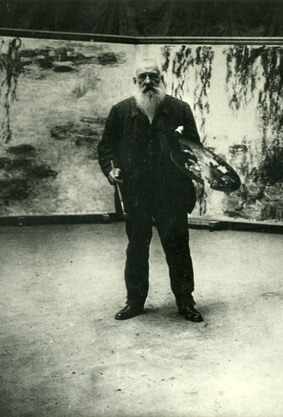
1927
Inaugurates the Water Lillies installation at l’Orangerie a few months after Claude Monet’s death
Late in life, his longstanding friendship deepens with Claude Monet. Clemenceau is an untiring supporter and encourages Monet’s Water Lilies donation and installation at the l’Orangerie museum. « When the water garden lilies transport us from the liquid plain to the travelling clouds of infinite space, we leave the earth and its sky to experience fully the supreme harmony of things ».
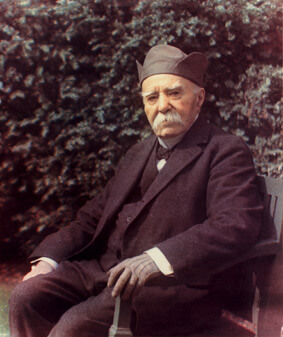
1929
24 november Georges Clemenceau dies at rue Franklin


